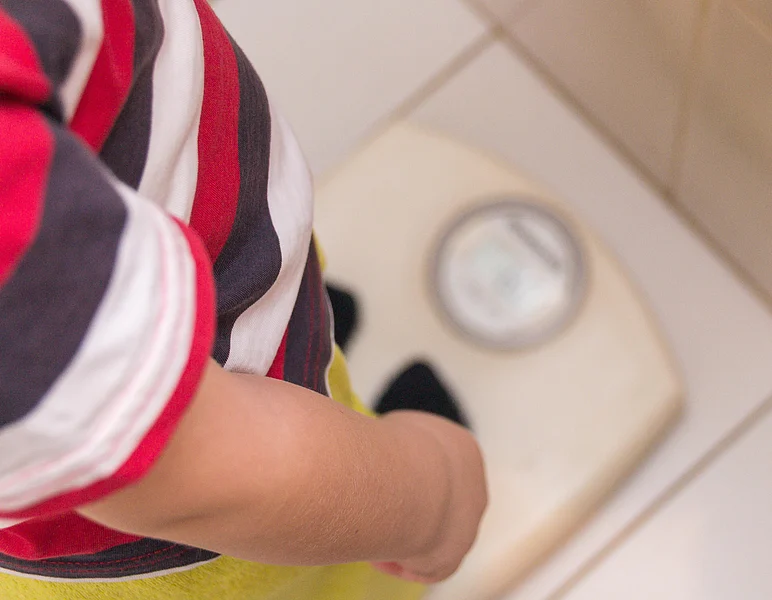Manténgase sano!

- Cara Murez
- Posted September 11, 2022
Talking to Your Child About Weight, But Avoiding Stigma
Helping a child deal with a weight issue, while avoiding negativity about their body image, can be challenging, one expert says.
Yet, obesity affects 20% of American children, causing harm to physical and mental health.
Dr. Marsha Novick, medical director of the Healthy Weight Program for Children and Teens at Penn State Health Children's Hospital, in Hershey, Pa., offered some suggestions for parents helping their child maintain a healthy weight.
"Parents should see obesity as a health or medical problem, rather than a willpower issue,"Novick said in a hospital news release. "Obesity is not their child's fault -- readily available ultra-processed foods are the problem. The reward centers in the human brain are stimulated by processed foods, stoking good feelings and cravings."
Parents can help by limiting access to these types of foods. They can use the 5-2-1-0 rule from the American Academy of Pediatrics as a guide. That's five servings of fruits and vegetables per day, two hours or less of screen time per day, one hour of physical activity or more per day, and zero sugar-sweetened beverages.
"Kids who spend hours watching screens spend less time playing and getting the physical activity they need to be healthy,"Novick said.
Children who are struggling with obesity are at risk for developing mental health issues like depression, anxiety and mood disorders, as well as more than 300 medical problems, including heart disease, diabetes and cancer.
A child can be diagnosed with obesity when they gain weight beyond what doctors consider healthy. Physicians use body mass index (BMI) to measure body fat based on a person's weight-to-height ratio. Doctors may become concerned when a child's BMI is above the 85th percentile.
"Obesity increases the risk of other medical problems,"Novick said.
Socioeconomic status can also contribute to obesity, as studies have shown that children in minority communities and children who live with food insecurity face an increased risk of obesity.
Talk to your child's primary care provider if you notice your child has trouble keeping up with other children or if you see them start to struggle with mental health issues and self-esteem. Also watch for headaches, constipation, snoring and heartburn, Novick said.
Lab work, depending on a child's age, can check for high cholesterol, fatty liver disease, prediabetes and high blood pressure. Your primary care doctor can even make a referral to a dietitian to help with healthy eating. Novick also suggests being open to trying prescription weight-loss medications, which may reduce hunger.
"Early intervention is really important,"Novick said.
More information
The U.S. Centers for Disease Control and Prevention has more on childhood obesity.
SOURCE: Penn State Health, news release, Sept. 7, 2022
